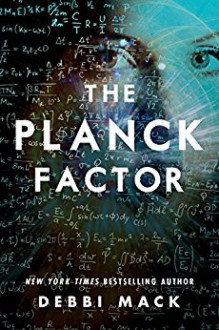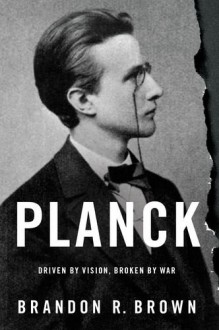
I write this review as a member of Rosie’s Book Review Team and thank Rosie Amber and the author for providing me with an ARC copy of this book that I freely decided to review.
This thriller (technothriller according to Amazon) tells a complex story, or rather, tells several not so complex stories in a format that can make readers’ minds spin. A thriller about a student who decides, on a dare, to write a genre book (a thriller) and whose life becomes itself another thriller, one that seems to mix spies, conspiracies, terrorism, the possibility of the end of the world, and it all relates to quantum physics. (Or, as she describes it in the book: “…a suspense story with a hint of science fiction and a touch of espionage at its heart.”) The parallelisms between the story of Jessica Evans (the protagonist) and that of her fictional character, Alexis, become more convoluted and puzzling as the book progresses and the astounding coincidences will ring some alarm bells until we get to the end and… It is a bit difficult to talk about the book in depth without giving away any spoilers, but I’ll try my hardest.
This book will be particularly interesting for writers, not only because of its storytelling technique (talk about metafiction) but also because of the way the main protagonist (a concept difficult to define but Jessica is the one who occupies the most pages in the book and her story is told in the first person) keeps talking (and typing) about books and writing. No matter how difficult and tough things get, she has to keep writing, as it helps her think and it also seems to have a therapeutic effect on her. It is full of insider jokes and comments familiar to all of us who write and read about writing, as it mentions and pokes fun at rules (“Show, don’t tell. Weave in backstory. Truisms, guides, rules, pointers—call them what you will… And adverbs. Never use an adverb.”) and also follows and at the same time subverts genre rules (we have a reluctant heroine, well, two, varied MacGuffins and red herrings, mysteries, secrets, traitors and unexpected villains… and, oh yes, that final twist).
Each one of the chapters starts with the name of the person whose point of view that chapter is told about —apart from Alexis’s story, told in the third person, written in different typography, and usually clearly introduced, there are chapters from the point of view of two men who follow Jessica, so we know more than her, another rule to maintain suspense, and also from the point of view of somebody called Kevin, who sounds pretty suspicious— and apart from Jessica’s, all the rest are in the third person, so although the structure is somewhat complex and the stories have similarities and a certain degree of crossover, there is signposting, although one needs to pay attention. Overall, the book’s structure brought to my mind Heart of Darkness (where several frames envelop the main story) or the Cabinet of Dr Caligary (although it is less dark than either of those).
As you read the story, you’ll probably wonder about things that might not fit in, plot holes, or events that will make you wonder (the usual trope of the amateur who finds information much easier than several highly specialised government agencies is taken to its extremes, and some of the characteristics of the writing can be amusing or annoying at times, although, whose story are we reading?) but the ending will make you reconsider the whole thing. (I noticed how the characters never walked, they: “slid out”, “shimmied out”, “pounded”, “bounded down the steps”, “clamored down”…) As for the final twist, I suspected it, but I had read several reviews by other members of the team and kept a watchful eye on the proceedings. I don’t think it will be evident to anybody reading the story totally afresh.
The novel is too short for us to get more than a passing understanding and connection with the main character, especially as a big part of it is devoted to her fictional novel, (although the first person helps) and there are so many twists, secrets and agents and double-agents that we do not truly know any of the secondary characters well enough to care. Action takes precedence over psychological depth and although we might wonder about alliances, betrayals and truths and lies, there are no complex motivations or traumas at play.
Due to the nature of the mystery, the novel will also be of interest to those who enjoy stories with a scientific background, particularly Physics (although I don’t know enough about quantum physics to comment on its accuracy). A detailed knowledge of the subject is not necessary to follow the book but I suspect it will be particularly amusing to those who have a better understanding of the theory behind it. (The author does not claim expertise and thanks those who helped her with the research in her acknowledgements). The book also touches on serious subjects, including moral and ethical issues behind scientific research and the responsibility of individuals versus that of the state regarding public safety. But do not let that put you off. The book is a short, fast and action-driven story that requires a good attention span and will be particularly enjoyed by writers and readers who enjoy complex, puzzle-like mysteries, or more accurately, those who like stories that are like Russian dolls or Chinese boxes.
I enjoyed this book that is clever and knowing, and I’d recommend in particular to readers who are also writers or enjoy books about writers, to those who like conspiracies, spies and mysteries, especially those with a backstory of science and physics, and to people who prefer plot-driven books and who love Hitchcock, Highsmith and Murder She Wrote.


 Log in with Facebook
Log in with Facebook 






